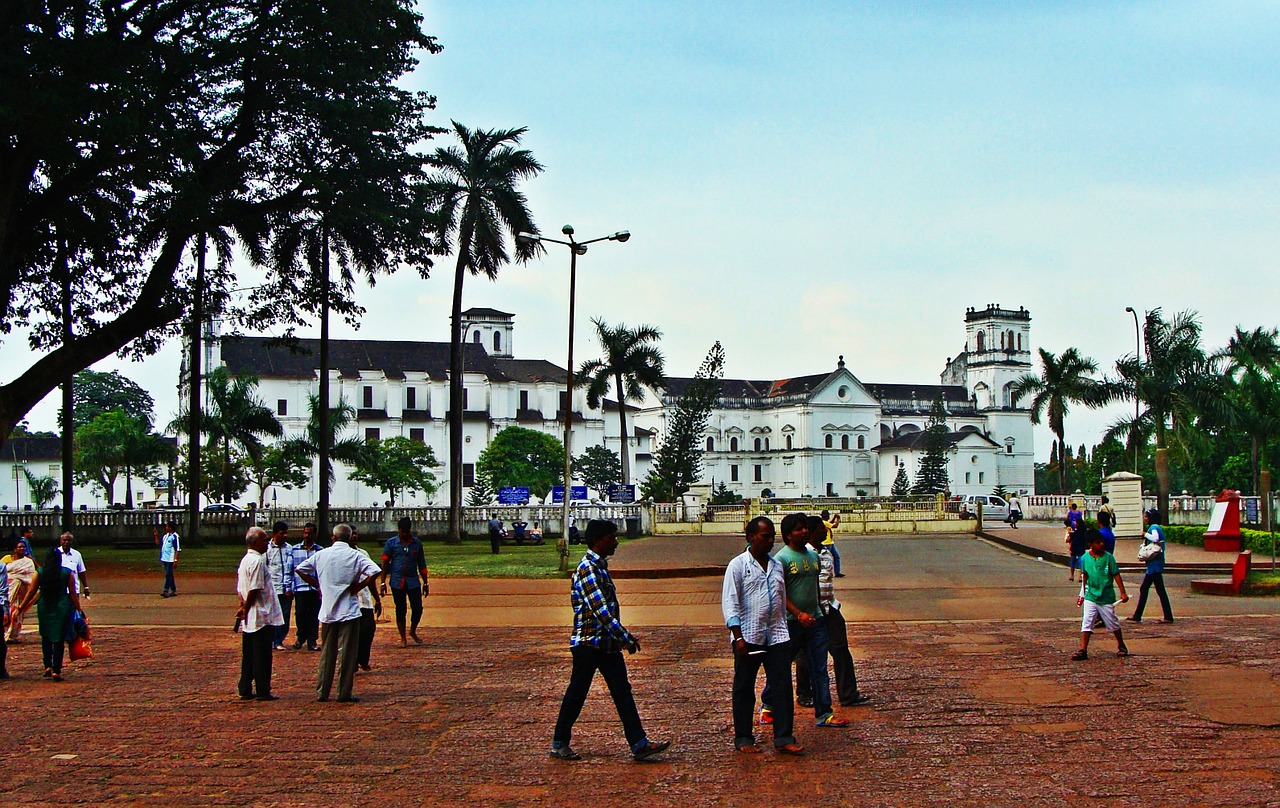Christians have come under unrelenting vilification and assault in India in recent years, and the trend has only worsened since the start of the pandemic. Father Stan Swamy’s inexcusable death was part of that pattern. But Christians too have themselves to blame for failing to unite across denominations.
When the overtly aggressive Hindu nationalist Bharatiya Janata Party (BJP) took over the reins of India in 2014, it came as a blow to minorities. Their deepest fears had come to pass.
One would think that the ruling government would assuage this fear and calm the angst of these communities. But shallow words of solace and consolation were spoken and five attacks were recorded soon thereafter.
Then came the shocker. The media accused churches of resorting to the ‘cry wolf’ syndrome with zero conclusive evidence. The lacerated bodies of the victims bear solemn witness to the delusion that the community is safe.
On 9 January 2019, the Morning Star reported that Hindu extremists decimated a church building in Guntur district in Andhra Pradesh because it was built on the west side of a village, which violated Hindu principles of placement and positioning.
On 10 April of the same year, a Christian tribal man was attacked with swords, sickles and iron sticks in Jharkhand. He was killed by a crowd of Hindu radical ‘cow protectors’ under the suspicion of having slaughtered an ox, considered sacred by Hindus. Three other tribal Christians were injured in the attack. How can a country that is sensitised to protect animals be pococurante when it comes to human rights? Is one subset of humans lesser in value than an animal?
On 2 October 2019, a day that the entire world recognises as a day of peace, given that it is Mahatma Gandhi’s birthday, a Christian birthday celebration was attacked by Hindu extremists in Vasalamarry village, located 40 miles outside of Hyderabad. According to local reports, the mob of 30 extremists stormed into the Christian home where guests had gathered for the birthday celebrations. The radicals vandalised decorations, terrified the guests and destroyed several household items.
A 2015 Times of India (TOI) report said that the number of Christians facing persecution under the Congress-led UPA was as bad as under the BJP-led NDA. According to a secret report sourced by TOI, there were nine instances of church vandalisation and one involving a pastor’s murder in 2013 and 2014.
Then, the pandemic struck. Christians foolishly believed that this would act as a page break in their persecution. But in a conversation with Frontline, Vijayesh Lal, general secretary of the Evangelical Fellowship of India (EFI), said: “We thought attacks on Christians would die down during the lockdown when businesses, markets, schools and colleges were closed, when nobody would venture out. But we were mistaken. The attacks on Christians increased during the lockdown. There were 33 attacks in March and 21 in June. There has been a further increase in July.”
Frontline further reported that every fifth incident of attack on Christians in the country happened in Uttar Pradesh. Tamil Nadu came a close second with 28 cases, including two hate crimes resulting in death, and the desecration of a church structure that was burned down. Karnataka recorded 20 cases of attacks against Christians in the first half of 2020.
India witnessed its most horrific killing in 2020, when the deaths of Jeyaraj and his son Fenix – who were tortured by the police – was brought to light, not by an otherwise belligerent news media but by a commoner, citizen and radio jockey. The extent of police brutality in the case was beyond human comprehension. Rods were stuck in their rear until both father and son bled to death.
The Persecution of Stan Swamy
As the community was grappling with the bestiality of a wing that was meant to protect its citizens, Father Stan was imprisoned on the ground of alleged terrorism and booked under the Unlawful Activities (Prevention) Act (UAPA).
History has borne witness to the incarcerations of countless innocents, sacrificed at the altar of misinformation, at the behest of an ingratiate political authority. Even Jesus’ crucifixion was a political murder. Over 2,000 years later, the settings have changed, but the narrative remains.
Stanislaus Lourduswamy, or Father Stan for the world, was an Indian Roman Catholic priest, a member of the Jesuit order, and a tribal rights activist for several decades before he was incarcerated for spreading terrorism at the ripe old age of 84.
It is interesting to note that conflicting reports emerged on the National Investigation Agency’s (NIA) questioning of Father Stan. According to the Indian Express, the NIA had questioned Father Stan multiple times in Bagaicha, Ranchi, and received incriminating literature and propaganda material that they say instigated the events at Bhima Koregaon in 2018.
According to another report by Scroll, however, Father Stan was never questioned. “There was interrogation only before his arrest but not a single day after,” Swamy’s lawyer Mihir Desai said. “If they had any further questions, they could have gone for custodial interrogation but they clearly did not have anything else to ask him.”
As a law student many years ago, I was taught, “Even if a hundred guilty go scot-free, an innocent man must not be punished.” The courts that were once decorated as the hallowed halls of justice must weep as we bid goodbye to Father Stan.
What really was Father Stan’s cardinal sin? He was a priest for over five decades of his life, during which he tirelessly fought for jal, jungle and zameen for the neglected of our society – the tribals.
The Christians, especially the clergy, have been a soft target for right-wing extremists who have sowed stories of ‘Christians for conversion’. Earlier this year, it was reported that police in Indore charged 11 Christians with violating Madhya Pradesh’s stringent anti-conversion law, following complaints from right-wing Hindu activists. Later, five out of the nine were out on bail.
In Father Stan Swamy’s case, things took an unusual turn because he was among 16 activists, academicians and lawyers booked and arrested over their alleged links to Maoists in connection with the Bhima Koregaon violence. While waiting patiently for his bail plea to get accepted, for nine excruciatingly painful months, deprived of even a sipper straw to have water, Father Stan passed away on 5 July 2021.
The insistence of the extremists that he should have been punished by the law, instead of dying, is a sad commentary on their conscience.
The Great Divide Among Christians
There is silent villainy also at play in this larger metanarrative. The chorus of condemnation that you hear now could have been augmented when Father Stan was still alive if Christians had stood as one. Out of curiosity, and so that I may not be accused of not paying attention to detail, I checked for statements of the Protestant missions on this case. The response was scarce.
The Great Divide within Christendom will continue to leverage the power of right-wing Hindu extremists. For whatever it is worth, the logic that “he’s not one of ours” fails at a time when members of the Christian faith cutting denominational lines must unite for justice.
It is here that a critical question remains to be answered. Are the attacks against Christians in different forms just a coincidence, or part of a larger, sinister circuitry, which makes its point every once in a while so that the fear may not die off? The vituperations of the political classes, who talk about Christians and Muslims as practising an alien faith, must appreciate that religion, faith and its observance or non-observance are strictly private – not to be misused to persecute one another.
The right-wing calls Christians “rice bags” and accuses them of conversion because of the ‘pseudo-kindness’ of missionaries who, they say, only wanted to convert unsuspecting hungry, poverty-stricken, unemployed Indians. An instructive interposition for such a predisposition is to prevent Hindus from conversion: Abolish the caste system. Nip the problem at the bud.
We must wait patiently till the moral arc of this end of the universe bends towards justice.
Katherine Abraham has completed her MA LLB, MBA and is currently pursuing her second Master's degree in Political Science. She is the author of Every Sunset Has a Story and The Rice Bag's Argument. She is an international freelance journalist (INS), public speaker, teacher and international photographer.


